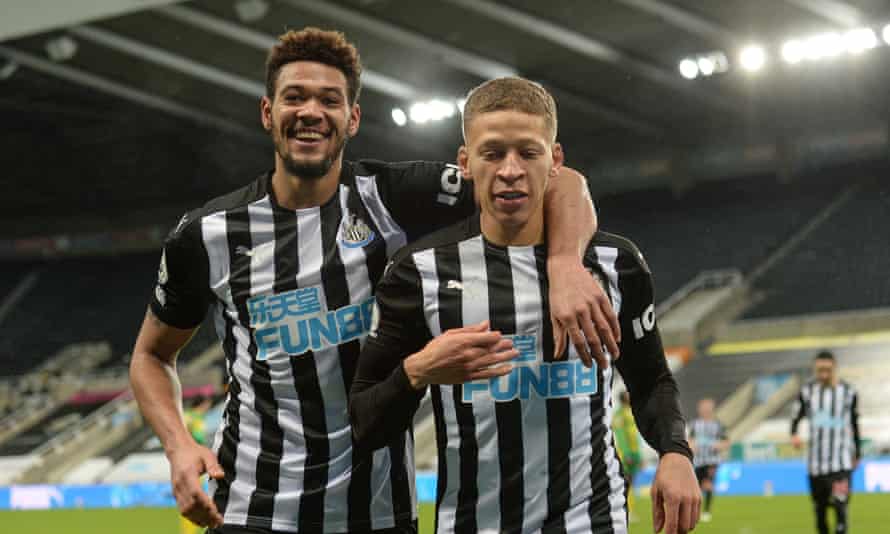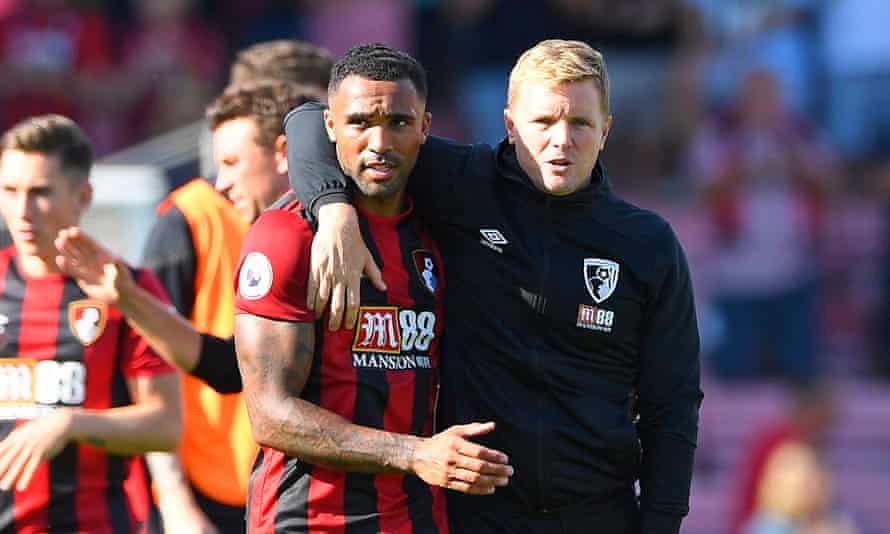It is absurd to write off Eddie Howe but he faces a tough task at Newcastle
And after all that, it turned out it was Eddie Howe all along. When the Saudis took over Newcastle United on 7 October, Howe was immediately mooted as a realistic short-term appointment. He is young, likable, plays attacking football and has recent experience in the Premier League. Perhaps he wouldn’t be the ultimate long-term choice, the manager to take Newcastle to Champions League glory, but then perhaps he would. He is only 43, and there was plenty of promise in his time at Bournemouth. He would, at the very least, have been a viable short-term solution.
And Howe may yet thrive. It’s absurd to dismiss him, as some have, as the man who took Bournemouth down. He was also the man who took the south-coast club from the fourth tier into the Premier League and kept them there for five years despite a limited budget, while playing football generally considered attractive.
But a month later, his appointment – finally confirmed on Monday – feels troubling. It’s nothing to do with Howe, as such; more the process that has led to his arrival. Steve Bruce was not sacked immediately but stayed on for two weeks in which Newcastle played one match, the 3-2 defeat by Tottenham. After which the club cycled through a bewildering array of candidates – Lucien Favre, Paulo Fonseca, Roberto Martínez, Rafa Benítez, Brendan Rodgers and then, this week, Unai Emery – while failing to win two further games under Graeme Jones.
Emery was an appointment that seemed to make sense. It would have been a risk in that his successes have all been in Spain, and stints in Russia, France and England have all in some way disappointed. He has Premier League experience and is adept at forging a hard-to-beat structure from less-than-brilliant players. Given his remarkable record in knockout competitions, he might even have made a run in the FA Cup a serious possibility.
But that deal was scuppered by being briefed too early, enraging Villarreal and unsettling Emery. It highlighted a recurring theme of the past few weeks: a lack of football expertise at Newcastle. It may be that the takeover, for all that it came 18 months after it was first mooted, happened too suddenly – before anybody had a chance to lay out chains of command or sound out a director of football. Michael Emenalo, formerly of Chelsea, emerged as a contender for that post soon after Howe’s appointment.
There appears to be confusion over who is leading operations – with the Reubens, the Staveleys and the Saudi majority shareholders (who reportedly interviewed Emenalo last week) at times apparently pulling in different directions – and a lack of familiarity about how football conducts its business. Is there any plan, any sense of a guiding philosophy? How do the owners want Newcastle to play?
Favre has used a high press in a very structured way, while Emery prefers a low block, looking to frustrate the opposition and strike on the break. Would they favour a back four as Paulo Fonseca played at Roma and Shakhtar, or a back three as Martínez uses with Belgium? Or retaining possession as Howe tended to at Bournemouth? What were the selection criteria? It’s very hard to see a link between the proposed candidates, beyond somebody people have heard of who would actually come.

So Howe takes over with everybody knowing he was not first choice, and quite possibly not even second or third. The example of Nuno Espírito Santo at Tottenham shows how dangerous that can be. But whoever had got the job would face an extremely difficult task. How, after all, do you get buy-in from players who must be aware that the likelihood is they will soon be replaced? Come on, Jonjo, give 110% so we can stay up and afford to buy somebody less prone to daft red cards. Sweat blood, Joelinton, so we can sign a forward who scores more than once every 10 games. Ho’way, Dwight, get stuck in so we can get somebody people don’t assume is still playing for West Brom.
Howe represents something of a gamble in that his previous stint away from Bournemouth, at Burnley between January 2011 and October 2012, was broadly unspectacular. He left for “personal reasons” – although his last game was a 4-3 defeat at Crystal Palace that left Burnley 16th in the Championship. But having negotiated the chaos of administration in his first spell, his second stint at Bournemouth was spectacular as he led them from League One to the Premier League.
Keeping a club of Bournemouth’s stature in the top flight for five seasons is an achievement however it was done, but if there was a criticism it was that they were always very open defensively. Even in 2016-17, when they finished ninth, they conceded 67 goals. Across their five-year stay in the Premier League, they let in an average of 1.74 goals per game.
That is, admittedly, significantly better than the 2.3 goals per game Newcastle have been leaking this season, but it does raise questions about how well suited Howe is to the immediate task of sorting out a defence yet to keep a clean sheet this season.

But then there are challenges everywhere with this Newcastle squad: they are over-reliant on Allan Saint-Maximin and the injury-prone Callum Wilson, who shone under Howe at Bournemouth. Behind them, the midfield isn’t great and none of the three goalkeepers seems capable of staying fit for more than a month at a time.
Put like that, and given Newcastle are six points adrift of the last safe spot with a very tough December set of fixtures to come, perhaps the lack of philosophical vision makes sense: maybe settling for somebody who would actually sign the contract was the best they could do.
Subscribe To Our Newsletter
-
How to get a free jersey
- How to get Pcs free jerseys Feedback Customer Reviews About Us Contact Us News FAQ
-
User Center
- Forget Password My Orders Tracking Order My Account Register
-
Payment & Shipping
- Customs & Taxes Locations We Ship To Shipping Methods Payment Methods
-
Company Policies
- Return Policy Privacy Policy Terms of Use Infringement Policy

